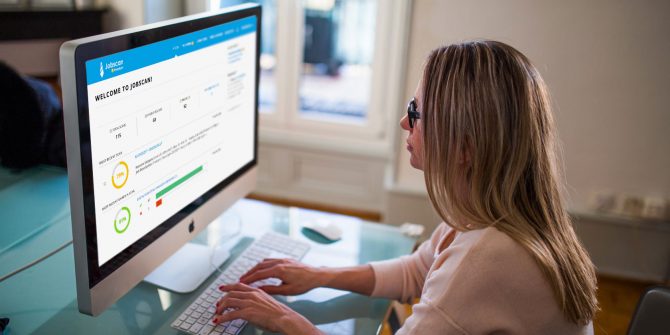In the span of much less than per week lately, authorities arrested three pilots from two distinct airlines under suspicion of intoxication earlier than they were about to fly.

But despite the extensive coverage of the pair of incidents in late July and early August, authorities say it’s enormously uncommon to locate an intoxicated pilot. Between 2010 and 2018, almost 117,000 US Pilots had been examined for alcohol, consistent with the Federal Aviation Administration. Of those, 99 were discovered above the criminal restriction. When one’s violations are observed, the consequences can be severe.
“It’s due to the seriousness with which the authorities take the protection of air tour,” says Chris Smith, accomplice at the Air Law Firm in London.
In a safety brochure that calls alcohol and flying “a deadly mixture,” the FAA cautions: “Any element that impairs the pilot’s potential to perform the desired duties throughout the operation of a plane is an invite for disaster.”
Federal Aviation Administration policies say a pilot cannot have a blood or breath alcohol awareness of .04 or more, half the prison restriction for riding in the United States. Pilots aren’t allowed to drink any alcohol within eight hours of performing or trying to act as a group member—”from bottle to throttle,” as the FAA says.
The enterprise says that the guidelines are minimal and show an extra conservative approach of staying away from alcohol for a full 24 hours before a flight.
“Ideally, overall avoidance of alcohol ought to be a key detail observed through each pilot in planning or undertaking a flight,” the FAA says in the safety brochure. It warns that a hangover may be just as risky for a pilot as intoxication.
Pilots can be criminally charged even though they have not taken off in an aircraft and face movement from the FAA and their company.
“If you get arrested for flying while intoxicated … The FAA and airline are going to move in so quickly to revoke the privileges,” says Doug Murphy, a Houston defense lawyer specializing in driving while intoxicated cases. “It may not be an automatic revocation, but there will be a suspension, a good way to save them from flying until they have made a dedication and found out what the facts are.”
He delivered:
“In most of those cases, they’re achieved.”
The FAA requires airlines to check pilots for drugs and alcohol randomly, and assessments can also be necessary after a coincidence or while a person – fellow team, protection employees, or different – has the motive to suspect a pilot is probably under the influence.
That changed into the case in both of the recent incidents. On July 30, 37-year-antique Delta pilot Gabriel Schroeder was arrested in Minnesota a touch after eleven a.m. after he was found with an alcoholic box and suspected of being impaired, in line with arrest facts Minneapolis-St. Paul International Airport’s police branch. Authorities became suspicious, the record stated, when he left a crew member security line after figuring out that extra screening became beforehand. The scheduled flight to San Diego became behind schedule, and it took an hour to wait for someone to update Schroeder.
Just a few days later, on the morning of Aug. 3, United pilots were taken into custody in Glasgow, Scotland, after being suspected of intoxication. Their flight to Newark was canceled. One was released without being charged. The other, sixty-one-12 months-antique Glendon Gulliver, changed into formally charged with being over the alcohol limit as he was preparing to fly, in step with The Associated Press.
The carriers said that in both cases, the pilots have been eliminated from flying pending the outcome of the investigations.
“Delta’s alcohol policy is the strictest inside the enterprise, and we have no tolerance for a violation,” the airline stated in an assertion. “Delta is cooperating with local authorities in their investigation.”
Some nations have more stringent policies than the US, and pilots might be in the situation under neighborhood jurisdiction and FAA rules; Scotland, for example, has a lower threshold for alcohol awareness than the US. Airlines’ regulations might be even stricter than those of the FAA. A United spokesman said this week that the service is converting its policies to require pilots to avoid consuming 12 hours before a flight instead of 8 in the coming days.
Over the past couple of years, three international excessive-profile instances of flying while intoxicated or preparing to fly ended in prison sentences of eight months, 10 months, and a year.
Even a conviction for riding below the influence or revocation of a driver’s license because of the offense should be reported to the FAA, which could result in a pilot losing the privilege to fly.
“License suspensions and convictions can be career-enders for pilots and reason for the revocation of their pilot’s license,” Murphy stated.
There is a path to returning to the air, though. An FAA-run occupational substance abuse treatment program supported by airlines and unions coordinates assessment, analysis, and remedy for pilots who struggle with substance abuse. Through the Human Intervention Motivation Study software, pilots can work closer to getting their medical certification reinstated and returning to painting, the legitimate HIMS website says.
Smith of the Air Law Firm says there may be a massive distinction between someone who enters the program voluntarily because they’re preventing dependancy and a person who’s stuck operating while intoxicated.
“Whether they could be reemployed truly with the equal employer, whether or not they might be successful in regaining their pilot’s license again might be a matter for the regulator,” he says. “But I could suspect that … Self-referring could be a robust mitigating component that the authorities could recollect.”
Despite the outsized attention such cases receive, the Flight Safety Foundation, an organization dedicated to aviation protection, does not consider the difficulty of drunk pilots a “good-sized protection problem.”




